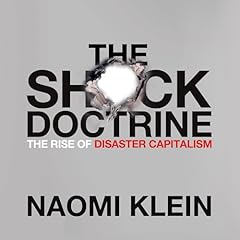
Imperialism, the Highest Stage of Capitalism
Failed to add items
Sorry, we are unable to add the item because your shopping cart is already at capacity.
Add to Cart failed.
Please try again later
Add to Wish List failed.
Please try again later
Remove from wishlist failed.
Please try again later
Adding to library failed
Please try again
Follow podcast failed
Please try again
Unfollow podcast failed
Please try again
 Prime members: New to Audible?
Prime members: New to Audible?Get 2 free audiobooks during trial.
Pick 1 audiobook a month from our unmatched collection.
Unlimited access to our all-you-can listen catalog of 150K+ audiobooks and podcasts.
Access exclusive sales and deals.
Premium Plus auto-renews for $14.95/mo after 30 days. Cancel anytime.
Buy for $14.66
-
Narrated by:
-
Yosef Kent
-
By:
-
Vladimir Ilyich
Imperialism, the Highest Stage of Capitalism (1917), by Vladimir Lenin, describes the function of financial capital in generating profits from imperialist colonialism as the final stage of capitalist development to ensure greater profits. The essay is a synthesis of Lenin's modifications and developments of economic theories that Karl Marx formulated in Das Kapital (1867).
Public Domain (P)2020 Author's RepublicListeners also enjoyed...




















People who viewed this also viewed...








It was like a crash course & expansion on Capital.
Something went wrong. Please try again in a few minutes.
Still Relevant Classic with Lots of Dated Data
Something went wrong. Please try again in a few minutes.
VL wrote this well. However, there was immediate resolutions to the points he made in this book. Antitrust laws and their evolution have completely made this book outdated to some extent. one could argue modern day America has returned to a trust or monopolized system, but not nearly a return to the era of the early 1900s. Perhaps the only market this represents is the Korean economy with Chaebols. Even then, Korea has more small businesses than most countries in the world.
Curious
Something went wrong. Please try again in a few minutes.
This narrator may literally be a bot.
Something went wrong. Please try again in a few minutes.


